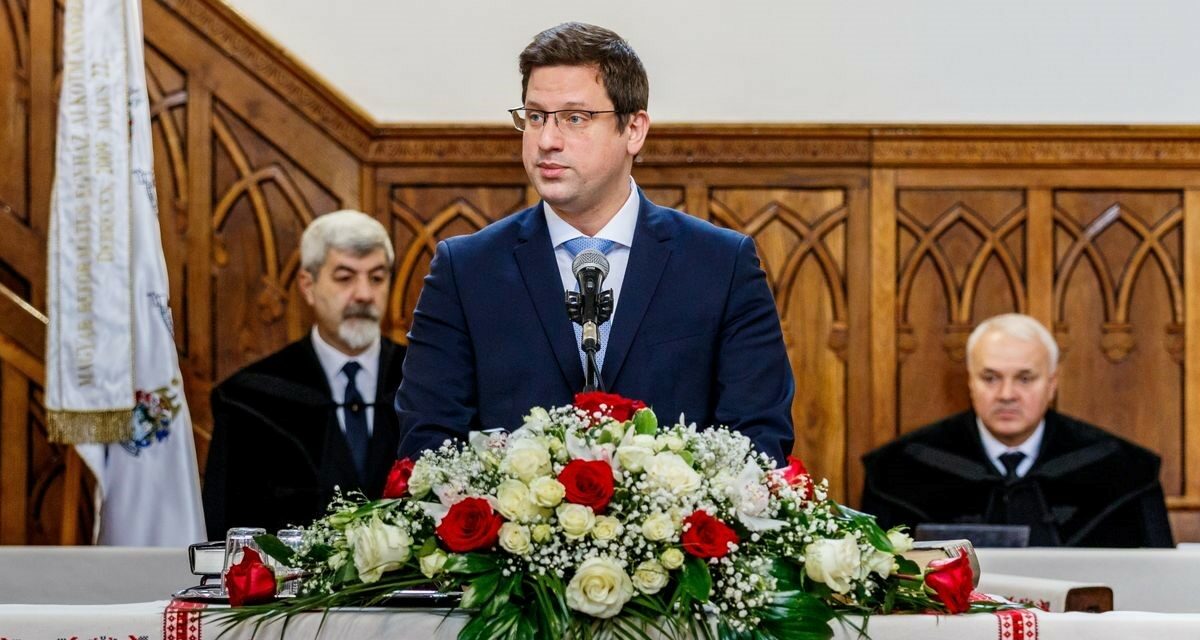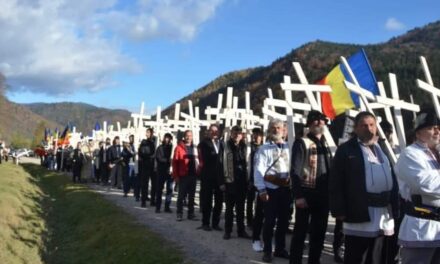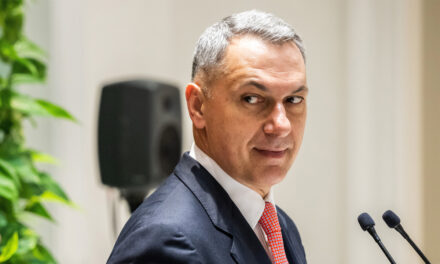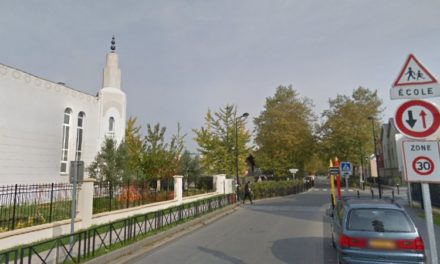At the celebratory assembly of the Transcarpathian Reformed Church, Gergely Gulyás, the minister in charge of the Prime Minister's Office, stated that "our long history has shown that the depth of the Christian faith in these times is the key to survival".
The re-elected bishop Sándor Zán Fábián and the officials elected to church positions in December 2022 took the oath at the ecclesiastical district assembly of the Transcarpathian Reformed Church (KRE).
Greeting the participants of the assembly held in the Beregsász Reformed Church, Prime Minister Gergely Gulyás explained that the biblical inscription commemorating the victims of the fire in front of the Parliament building in 1956 - "We pursue, but we do not abandon; we crush, but we don't lose" - gained its meaning with the withdrawal of the Soviet troops and the fall of communism.
For more than a century, the Hungarian fate has not been identical to the fate of Hungary. The basic law adopted in 2011 made it clear that every Hungarian is responsible for every Hungarian, therefore the current Hungarian state "must act with the principle of a unified Hungarian nation in mind", underlined the minister.
Gergely Gulyás reminded us that already at the episcopal swearing-in of Sándor Zán Fábián in 2015, he emphasized that Hungary bears responsibility for the Hungarian communities living outside our borders. Nowadays, the problem is even greater, the situation is more serious, "the episcopal ministry means an even heavier cross".
Transcarpathian Hungarians are in the most difficult situation among the communities that make up the world Hungarians. "We help Transcarpathian Hungarians and Transcarpathia, meanwhile we also support Ukraine," stated Gergely Gulyás.
He explained:
Russia attacked its heroically defending neighbor in defiance of the rules of international law. Hungary condemns the aggression, "we bow our heads to all soldiers fighting for their homeland and freedom", we sympathize with the family members mourning their loved ones.
The suffering of Ukraine is shared by all national communities living there, and Hungary receives hundreds of thousands of refugees. "We are proud of the Transcarpathian Hungarian institutions, which since the beginning of the war have been making enormous efforts to take care of refugees from the war zone," said Gergely Gulyás.
He pointed out: since the beginning of the war, the value of Hungarian humanitarian aid has exceeded HUF 31 billion, and charitable organizations have so far delivered 3,500 tons of donations worth more than HUF eight billion to Ukraine.
Gergely Gulyás thanked KRE for its contribution in delivering aid to its destination, and highlighted the excellent working relationship with the Subcarpathian county leadership, which, according to him, is one of the exceptions. Hungary wants to be a friend of Ukraine, "but today this is made difficult by deliberate misunderstandings and actions that violate the rights of the Hungarian community," he pointed out.
While Ukraine complains about the violation of its sovereignty by referring to international law, it is not right to "ignore the fundamental rights and international norms of the national minorities living in its territory", the minister pointed out. The Hungarian men who fight under the Ukrainian flag "deserved that this country regards them as its own, as members of the Hungarian community."
"Our long history has shown that the depth of the Christian faith in these times is the key to survival"
he said. We have to believe that we can save or restore the communities, the families, "the church and the school" that provide a framework for Hungarian life in Transcarpathia as well.
God protect Transcarpathia and Transcarpathian Hungarians! Gergely Gulyás concluded his words.
Volodimir Csubirko, the chairman of the Subcarpathian County Council, greeted the participants of the festive assembly in Hungarian, and then thanked Gergely Gulyás for clarifying Hungary's position regarding the war.
The county manager reminded that Hungary was one of the first to recognize the independence of Ukraine and the great famine of the 1930s as genocide long before the outbreak of the war. Provocations must not be given in and peace must be preserved in Transcarpathia - underlined Csubirko, who called on the followers of various religions to unite.
In his closing remarks, Bishop Sándor Zán Fábián called 2023 the year of hope and said that it is necessary to pray in Subcarpathia for the revival of dying communities. As he said, all wars will end and peace will come.
"Until then, relying on God's promises and pleading for the Holy Spirit, we must stand firm as disciples, as people, for each other and against no one," said the bishop of KRE.
Source: MTI
Photo: János Nemes/MTI












